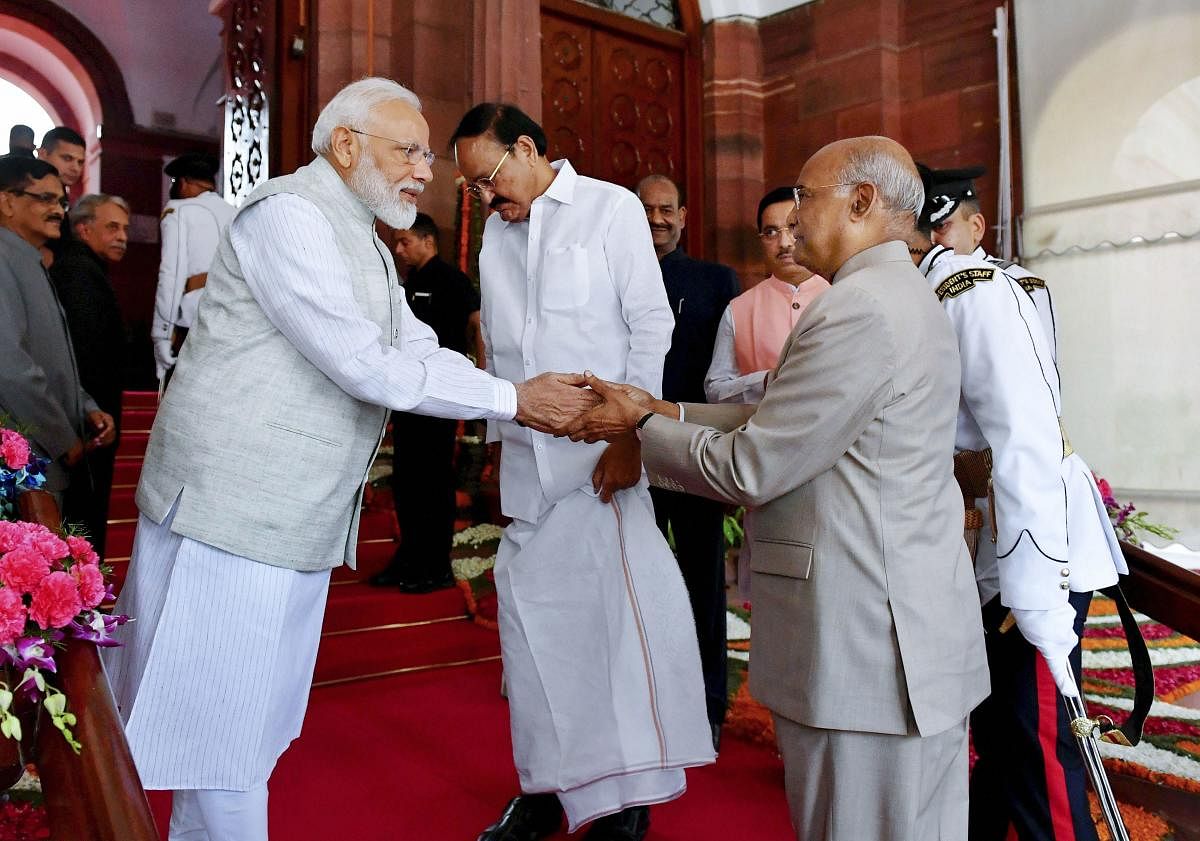President Ram Nath Kovind’s address to the first session of the 17th Lok Sabha, in joint session with the Rajya Sabha, was disappointing as it failed to highlight the most pressing and important issues and challenges before the country but presented a mostly partisan and contentious agenda before it. The President is obliged to speak for the government and lay out its plans and policies. So, he may have had no choice but to read out the written text. It is unfortunate that the main items on the agenda that he unveiled were the most divisive and controversial proposals before the nation. Much of what he said was a verbal exposition of the BJP’s election manifesto. It may be claimed that the victory secured by the BJP in the election gives it the mandate to implement the promises and proposals made in the manifesto. But should the government hit the ground running with the most contentious of them?
The themes which dominated the address are problematic ones like triple talaq and nikah halala legislation, the proposal to implement the National Register of Citizens on a priority basis, the move for simultaneous elections, and an extreme emphasis on national security issues, raising some fading problems to the level of clear and present dangers. Each of these has a divisive, disruptive and negative dimension to it. Every citizen would only like the security of the country to be strengthened, but the BJP’s idea of national is so different and constricted that it turns national security into an idea to take political advantage of and to beat the opposition with. No-one would oppose the need to eradicate social evils like triple talaq but it is not right to turn what’s now legally invalid anyway into a crime that attracts a jail term. That makes it a motivated move to harass a community. The National Register of Citizens has been turned into a communal exercise and was used to polarise voters during elections. The country is divided on the move for simultaneous elections, but the government seems bent on going ahead with it.
Other proposals that the President mentioned, like the plans to formulate a new industrial policy, to improve the skills of the youth, to simplify the GST system and to implement other development and welfare programs were overshadowed by the political messages sought to be sent out. It will be unfortunate if these divisive plans are the government’s priorities. It should not dissipate the political capital that it gained through a big election victory by pursuing divisive and controversial plans. There is much else to do in the country to improve the lives of people. The government should concentrate on that.
